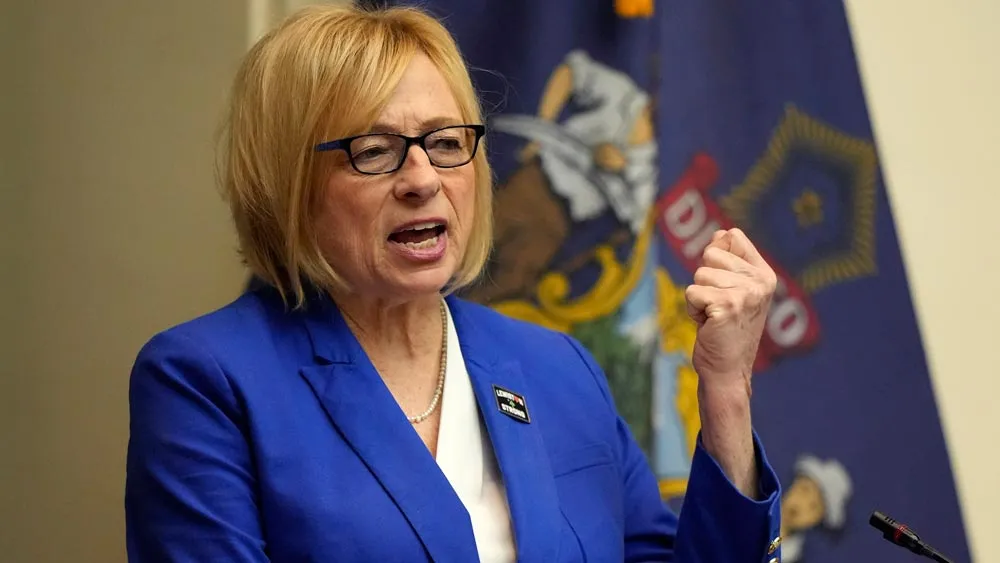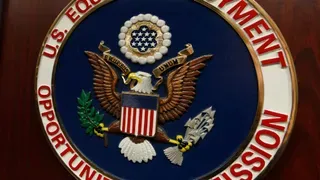June 28, 2012
States Divergent in Plans for Health Care Ruling
Jason St. Amand READ TIME: 5 MIN.
CHICAGO (AP) - As the nation awaits the Supreme Court ruling on President Barack Obama's health care overhaul, states across the country are considering how they will respond to the historic decision. Some Democratic-led states vow to push ahead with various provisions no matter what happens. In some Republican territories, elected officials insist they will try to hold off on implementing the law, even if the court upholds it. And most states are bound to miss key deadlines if the law or even pieces of it survive.
___
PUSHING AHEAD:
One contingent of states plans to stay the course regardless of the high court ruling.
Oregon's Legislature voted in 2009, a year before Obama's overhaul was approved, to create an online state health insurance exchange. If the court strikes down only the federal requirement that almost everyone obtain health insurance, the state's exchange director Rocky King says he still can build a profitable exchange to launch in 2014.
"We assume we can go forward," King said. "It may make a difference in terms of the number of people we can enroll, but we think the exchange has value with or without the mandate."
If the court strikes down the entire health care law, however, the exchange would lose more than $60 million in federal grants and thousands of potential customers. In that scenario, state officials would have to wait for cues from the Obama administration and for Congress to decide a path forward, King said.
California has been a model for the federal health care overhaul since the law's passage and has begun implementing parts of it already, including the beginnings of health care exchanges. The state also has banned insurers from refusing coverage for children with pre-existing illnesses and allowed young adults to stay on their parents' plans through age 26.
California passed its own state legislation to ensure those measures are preserved even if the federal law is thrown out. But that doesn't mean the state is unaffected by Thursday's ruling. As one of the law's biggest financial beneficiaries, it stands to gain as much as $15 billion annually in federal money for health programs.
Hawaii also has been moving full speed ahead and joined several states last year in filing a friend-of-the-court brief in support of the new law.
"Our goal is universal health coverage here," said Beth Giesting, who was hired as a coordinator to implement the overhaul's changes in Hawaii.
In Massachusetts, which laid the groundwork for the federal health care law with a sweeping 2006 state program, officials say they will continue efforts to expand coverage to nearly all residents no matter what. But like California, the state could lose hundreds of millions in assistance if the federal law is knocked down.
"Even in a worst-case scenario of the health care law being struck down entirely, Massachusetts is going to forge ahead," said Glen Shor, executive director of the Commonwealth Health Insurance Connector Authority.
___
DIGGING IN:
On the other side are Republican leaders who vow that no matter how the Supreme Court rules, they will not act on the overhaul before November, when they hope the GOP can win back the White House and the Senate and repeal the law.
Republican Wisconsin Gov. Scott Walker said this week that only in the event of a GOP defeat would Wisconsin "figure out some alternative within the state."
Robert Kraig, executive director of Citizen Action of Wisconsin, a health care advocacy group that supports the law and expanding health insurance coverage, said the governor is "on the far end of the spectrum in terms of trying to block the law and doing nothing to prepare for it."
But Walker is not alone.
Lawmakers in Idaho, where about 19 percent of residents are uninsured, were the first in the nation to pass a law in 2010 requiring the state to sue the federal government over the overhaul. Last year, they toyed with the idea of nullifying the health care law and have taken no steps toward implementation since. Now they're banking on the Supreme Court turning down the measure or a future repeal.
South Dakota Gov. Dennis Daugaard, Florida Gov. Rick Scott and South Carolina Gov. Nikki Haley have said they too will wait until November to before acting on any surviving parts of the law.
___
MOVING MONEY:
Millions of people already have received new benefits under the law. But those could disappear it is struck down, and many states are trying to figure out what to do if that happens.
Minnesota Gov. Mark Dayton, a big supporter of the federal overhaul, extended Medicaid coverage last year to 84,000 vulnerable adults. But Dayton has said little publicly about the implications of the Supreme Court's ruling for Minnesota. That leaves many unanswered questions about the fate of the people Dayton switched to the joint federal-state Medicaid program from less generous state-funded programs.
A ruling against the law also would threaten other planned expansions, such as in Washington state, which received $128 million to help set up its insurance exchange and an additional $200 million for its preexisting-condition insurance pool. Officials are uncertain whether that money could stay with the state or would have to be returned.
In Michigan, the law has brought widespread benefits: More than half a million seniors have received some free preventive health care services this year. And 1.8 million residents now receive preventative services with no co-pay. Another 57,000 young adults in Michigan are on their parents' health insurance plans.
Last week, U.S. Health and Human Services director Kathleen Sebelius visited Detroit to announce grants for six Michigan health centers to help expand access to care under the law. Officials there aren't sure what they'll do if that money disappears.
Funding for North Dakota's 15 community health centers may be jeopardized, and three other planned centers might not be built if the federal law is overturned.
___
SWEATING DEADLINES:
Most states have taken few - if any - steps toward creating the insurance exchanges that are a cornerstone of the health law. The online marketplaces would allow people and small businesses to comparison-shop for health insurance.
So if the court upholds the mandate to establish exchanges, many states will have to scramble to get their plans approved by January and the programs running a year later. As of March, only 13 states and Washington, D.C., had adopted plans for exchanges.
In Obama's home state of Illinois, Democratic Gov. Pat Quinn considered an executive order to establish an exchange, but state Rep. Frank Mautino said it's too late. The first year of the project will have to be a joint state-federal exchange, he said.
In Michigan, House Republicans have refused to let state officials start setting up the MI Health Marketplace before the Supreme Court ruling. Gov. Rick Snyder is one the few Republican leaders who has acknowledged considering a state-federal partnership to get an exchange in place.
"I'm just trying to be a pragmatist here," Snyder said Tuesday.
In Indiana, Republican Gov. Mitch Daniels ordered state agencies to investigate the cost and feasibility of an online health insurance marketplace in January 2011, but Daniels told the agencies to keep their work in the planning stages until the court ruled.






